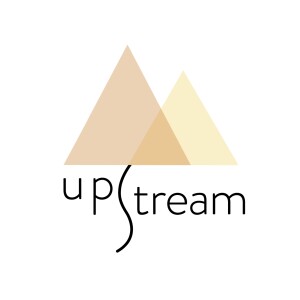
Palestine Pt. 2: Justice for Some with Noura Erakat
 2023-11-23
2023-11-23
For those of us living in the United States, today — what we call Thanksgiving — is a very significant holiday because, for some of us at least, it’s a day to recognize and remember the violent, genocidal, settler-colonial history of the land we live on. Our lives here in North America are predicated on a history and a pattern that is repeating itself as we speak, most notably in occupied Palestine, where we are witnessing what feels like the culmination of a decades-long ethnic cleansing campaign against the Indigenous population of Palestine by the forces of Zionism, the state of Israel, and, by the reigning global hegemon, the United States.
We've already covered some of the history that led us to this point in Part 1 of our ongoing series on Palestine with Sumaya Awad, and on today's show, we're going to be exploring a different angle, outlining the history and context of the formation of the state of Israel, how Palestinians resisted Israeli occupation from before the state was even created, and how they continued to resist throughout the disingenuously named “peace” process that culminated with the Oslo Accords. As we’ll see, this process was never intended to bring a lasting peace to the region, but was intended to cement in the status quo of Israeli supremacy and the ongoing subjugation of Palestinians.
To talk about this we’ve brought on Noura Erakat, Associate Professor at Rutgers University in the department of Africana Studies and the program of Criminal Justice and author of Justice For Some: Law and the Question of Palestine. From the Great Arab Revolt in 1936 to the second Intifada at the start of this century, and up to Operation Al-Aqsa Flood on October 7th, in this conversation we explore the history of Palestinian resistance to Israeli occupation, the so-called peace process, the betrayal of the so-called two-state solution, where Israel's ethnic cleansing campaign is headed, and what it’s up against.
Further Resources:
- Upstream – Palestine Pt. 1: A Socialist Introduction with Sumaya Awad
- Justice For Some: Law and the Question of Palestine by Noura Erakat
- Palestine: A Socialist Introduction edited by Sumay Awad and brian bean
- The Hundred Years’ War on Palestine by Rashid Khalidi
- Palestine, Israel, and the U.S. Empire by Richard Becker
- Donate to Middle Eastern Children's Alliance (MECA)
- Anera: Provide urgent humanitarian aid to Palestinians
- Write your member of Congress to demand an immediate ceasefire
This episode of Upstream was made possible with support from listeners like you. Upstream is a labor of love — we couldn't keep this project going without the generosity of our listeners and fans. Please consider chipping in a one-time or recurring donation at www.upstreampodcast.org/support
If your organization wants to sponsor one of our upcoming documentaries, we have a number of sponsorship packages available. Find out more at upstreampodcast.org/sponsorship
For more from Upstream, visit www.upstreampodcast.org and follow us on Twitter, Instagram, Facebook, and Bluesky.
You can also subscribe to us on Apple Podcasts, Spotify, or wherever you listen to your favorite podcasts.
More Episodes
 2024-02-27
2024-02-27
 2024-02-13
2024-02-13
 2024-01-30
2024-01-30
 2024-01-16
2024-01-16
 2024-01-02
2024-01-02
 2023-10-24
2023-10-24
Create your
podcast in
minutes
- Full-featured podcast site
- Unlimited storage and bandwidth
- Comprehensive podcast stats
- Distribute to Apple Podcasts, Spotify, and more
- Make money with your podcast
It is Free
- Privacy Policy
- Cookie Policy
- Terms of Use
- Consent Preferences
- Copyright © 2015-2024 Podbean.com





